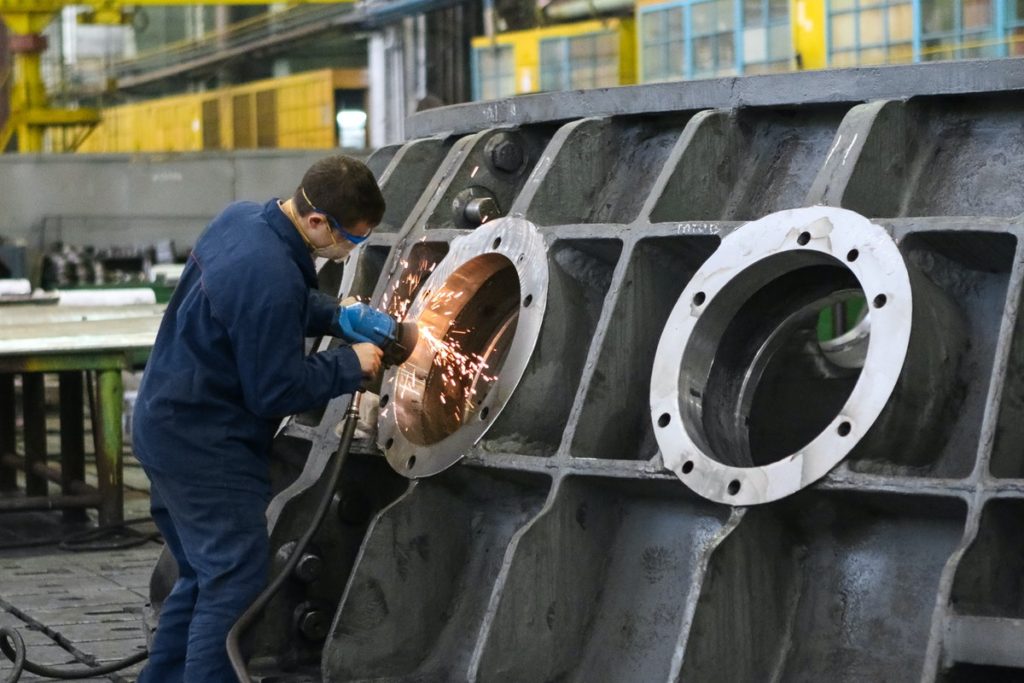In today’s digital age, the traditional factory floor is undergoing a transformation. Thanks to advances in information and communication technologies, factories are becoming more connected, efficient, and flexible. This shift is often referred to as the “smart factory” movement.
What is a Smart Factory?
In a nutshell, a smart factory is a facility in which production is managed and controlled through advanced information and communication technologies. These are often combined with automated systems to increase efficiency and productivity.
The term “smart factory” is sometimes used interchangeably with “Industry 4.0,” which refers to the fourth industrial revolution. This is a period of history characterized by the increasing use of advanced technologies in manufacturing and other industries.
How is it Beneficial to Businesses?

Smart factories represent a massive opportunity for businesses of all sizes. Here’s a closer look at some benefits of smart factories:
Increased Efficiency
One of the most significant benefits of a smart factory is that it can help to increase efficiency. This is because all processes are automated and controlled by a central system. This means less room for human error, and tasks can be completed more quickly.
Reduced Costs
Smart factories can help reduce your costs. This is because businesses can make use of cheaper, more efficient labor. Additionally, factories can be designed to use less energy and resources. Suppose you use predictive maintenance methods on your industrial air compressors. You would know when to get more efficient air compressors filters to avoid unplanned downtime and save on energy costs.
Flexibility and Scalability
Another benefit of a smart factory is that it is more flexible and scalable than a traditional factory. The system can be easily adapted to changing needs and demands. Additionally, businesses can scale up or down as needed without incurring additional costs.
Improved Productivity
Finally, a smart factory can also help to improve productivity. This is because businesses can use advanced technologies to streamline processes and optimize production. For example, companies can identify bottlenecks and inefficiencies in their production line by using data analytics. This can help to improve overall productivity.
Industry Best Practices in Smart Factories
Businesses should keep many best practices in mind when implementing a smart factory system. Here are some of them:
1. Invest in Automation
One of the best ways to take advantage of a smart factory is to invest in automation. This will help to automate tasks and processes, which will, in turn, increase efficiency and productivity. So, if you’re looking to implement a smart factory system, it’s crucial to invest in automation technologies.
2. Manage Data Wisely
Another critical best practice is to manage data wisely. Data is collected from various sources in a smart factory, such as sensors and machines. It is crucial to have a plan for storing, organizing, and analyzing this data. This will help you to make better decisions about your production process.
3. Train Employees Well
Employees are responsible for managing and operating advanced technologies in a smart factory. It is therefore essential to train them well. This will help them to use the system effectively and avoid human errors.
4. Establish Clear and Effective Communication
Establishing a clear and compelling communication infrastructure is vital to smart factories. This includes everything from setting up a network that can handle data flow to installing systems that allow machines to communicate with each other. It’s also essential to have a communication plan in place so that everyone involved understands their role in the system.
5. Implement Secure Systems
Finally, it is essential to implement secure systems. This is because a smart factory system relies heavily on data and technology. If this data were to fall into the wrong hands, it could be used to harm the business. Therefore, it is vital to have strong security measures in place to protect your data.
The Future of Smart Factories
The future of smart factories is looking bright. With the continued advancement of information and communication technologies, businesses can see even more benefits from implementing a smart factory system.
Furthermore, as the costs of these technologies continue to decrease, more businesses will be able to take advantage of them. This will help further automate and improve the production process because companies will be able to afford the latest technologies.
The Bottom Line
Overall, smart factories offer a wide range of benefits for businesses of all sizes. By implementing a smart factory system, companies can improve efficiency, reduce costs, and increase productivity. While the term “smart factory” may seem daunting at first, the truth is that it’s a relatively simple concept that can have a significant impact on your business.
As the world continues to move towards a digital age, more and more businesses are turning to smart factories to stay competitive. If you’re not yet using this technology, it’s time to consider making the switch to a smart factory system.

